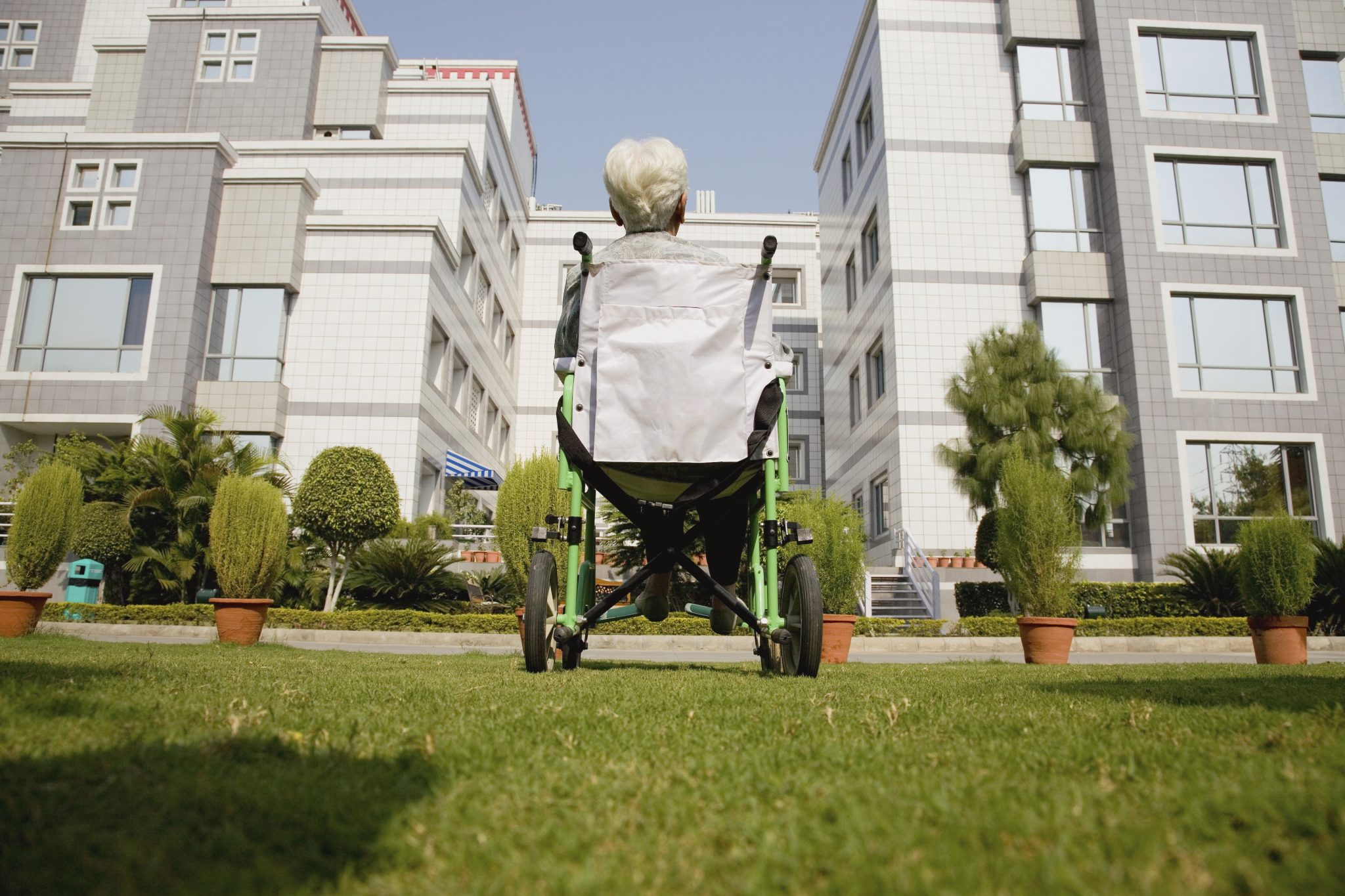So, the time has come for mom or dad to move into assisted living. This is often a very difficult time in a family’s life, and you and your parent might be experiencing a lot of emotions about this major life transition.
While it’s completely natural for everyone to have some complicated emotions about this move, the transition itself doesn’t actually have to be painful. With a little bit of planning and discussion you can help your mom or dad find an assisted living facility where they feel comfortable and safe, and you can relax knowing that they are being well taken care of. The following are some tips to help you and your parent find the perfect place for them to enjoy a happy and healthy future.
Their Needs
The first thing you’ll want to figure out is exactly what kind of support your parent needs. Assisted living is often used as a broad term, so depending on what medical issues your parent is facing, they may be in need of extensive care, or simply a place to build community and have some support with basic tasks.
There are several living options to consider. Let’s start at the lowest level of support:
Independent Living
Independent living is a living environment where your mom or dad would still be living on their own, but would be living in a building complex that was specifically reserved for retirees. Independent living arrangements usually include amenities such as lunches and dinners, special events and fitness classes. Independent living is a great way for older adults to have a support network of friends and workers nearby while also enjoying support for their daily needs. Most independent living homes also offer light housekeeping and shuttles to nearby grocery centers and malls.
This is the right fit for a older adult who doesn’t have any major medical needs, but who is struggling to maintain a home or growing tired of cooking for themselves. It helps older adults to be more social and live independently for a longer period of time.
Assisted Living
Assisted living can be fairly similar to independent living, where a older adult has their own apartment and is still fairly active, but this kind of living is most suitable for those who require daily care with activities such as bathing or the administration of medication. This might look like a caregiver coming into the apartment every day to help with the specific needs of their client.
Assisted living can also look like a more intensive care experience where everyone in the facility is receiving more focused care. People in assisted living might have an apartment but generally don’t have a kitchen and will usually have all of their meals prepared for them.
Long Term Care
Long term care is the most intensive out of all of the living arrangements. This is generally reserved for older adults who are experiencing extreme physical or cognitive difficulties. There is a lot of care involved with very hands-on, 24 hour staff, and, if your parent is dealing with a condition like dementia or Alzheimer’s, they will likely be in a locked ward to ensure their safety.
It’s like that if you are reading this then your parent is firmly in the assisted living category, but it’s always good to know the differences. Sometimes a condition progresses rapidly, or your parent may actually be in much better condition than you thought and might need very little support. Knowing what to expect in the different living situations can help you to know exactly what to look for. Here are a few things to consider:
- How mobile is your parent? Do they need to use a cane, walker or wheelchair
- Is your parent struggling with mental health issues?
- Does your parent have a diagnosed memory disease?
- Does your parent have a complicated medication routine?
- Does your parent require regular physical therapy?
- Can your parent clean their house?
- Can your parent cook healthy, nutritious meals for themselves?
- Can your parent bathe themselves?
All of these questions should help you figure out the kind of care your parent needs when looking for an appropriate care facility.
Location
When looking for a care facility for your parent the first thing you’re probably going to think about is the quality of the care home. And, while it’s of course important to find a well-reviewed and comfortable home, the location of that home is almost equally important.
It can be quite disruptive for older adults to be moved far away from the neighborhood they’re familiar with. In fact, abrupt moves can result in a condition known as relocation stress syndrome. According to Social Work Today, relocation stress syndrome can happen within days, or sometimes even as long as several months after a move. Older adults experiencing this condition might be angry, depressed, and erratic, display aggressive mood swings and a wide range of physical symptoms. These physical symptoms can include a rapid heart rate, weight changes, nausea, poor sleep and increased substance use.
While sometimes a move is unavoidable, you should always work with your parent and a support worker to make the move as gradual and sympathetic as possible. Most older adults have lived in the same location for many years, and are comfortable in their routines. Ripping them away from that to suddenly be placed in unfamiliar surroundings can be extremely traumatic. This is especially true for older adults who are experiencing memory failure. Research shows that many people, even with cognitive decline, still have a grasp on their long term memory, but have much more trouble with more recent memories. This makes it very difficult to navigate a new space where they don’t have any established connection.
That’s why it is not only important to consider the physical location of where your parent ends up, but also what supports will be in place once they arrive there. You will want to ensure there’s a strong support system in place to walk them through this major transition.
Ratio
While you’re browsing for an appropriate facility, likely using a site like A Place for Mom, you might be tempted by the attractive amenities provided at certain spots. However, something very important to consider is not just what’s on offer, but how many people are providing those services.
A piece by the National Institute of Nursing Research found that large ratios between nurses and patients (that is, when a single nurse is assigned to a large number of patients) the rates of deaths and rehospitalizations were much higher than if a nurse was assigned a much lower number of patients, and patients were tended to by more medical professionals overall.
In an ideal situation you will want to look at a ratio of around six patients to one nurse or care worker. Of course, you’ll want to interview any potential facilities, and also look at online reviews of the location.
Feel

- Cleanliness of the establishment. Walls, floors and bathrooms should be clean and dry. There shouldn’t be any dirt or trip hazards. You should also inquire about ventilation and how often vents are cleaned. Proper ventilation is a key component of keeping sickness at bay, and can also help with symptoms of asthma and other breathing issues.
- Cleanliness and attitude of the residents. You should look for residents who seem clean and well cared for. Do they look happy and seem to have good relationships with the staff? If any of the residents seem scared or withdrawn, especially in their interactions with staff, then that is cause for concern.
- Safety procedures. Check to see what policies are in place for a disruptive patient, a cognitively impaired resident who leaves a secure area, and what happens when a contagious illness begins to spread throughout the facility.
Vibes can be incorrect, but it is still important to trust your gut. If something feels off then that usually means it is. Don’t ignore that feeling. After all, it’s your parent’s health that is at stake.
What’s Important to Your Parent
While delicious meals might be your top priority, that might not actually be the most important thing for your mom or dad. So, sit down and talk to them and find out what they care about most when thinking about the best assisted living facility for them. They might want to enjoy a good social life, so looking for a place with a bustling event calendar and lots of community lounges would be a good choice. Maybe they want to make sure there’s a chapel so that they have somewhere to pray, or a barber or hair salon so they can regularly look their best.
Don’t push them if their idea of a comfortable home doesn’t match yours. Just think about the dignity you’d want to be granted if you were in their position. While you might not be able to grant all of their wishes, it’s important to do your best to find something that ticks some of their boxes. Your attention and understanding will mean a lot to them.
Cost
Of course, a lot of your decision making during this process is going to come down to cost. Many assisted living facilities are expensive, and you might be limited to homes that accept Medicare. Always be sure to speak with an insurance provider to find out what kind of care your loved one is eligible for, and speak to any potential facilities as well, to make sure you’re not going to end up paying for any hidden fees. Think about finding a facility the same way you would search for a house. Sure, there might be features you would like, but what is it that you can truly not live without. Deal breakers are a helpful way to find the best spot. If you haven’t taken the time to go through dealbreakers with your loved one then you might miss out on an amazing spot because you thought something was a deal breaker when it was really just a preference.
Cultural Comfort
Our world is made up of billions of people with different backgrounds and experiences. While it’s always good to interact and make friends out of people who are different from you, it can also be important to have a network of people who understand the same cultural experience as you. There’s a camaraderie and a shorthand that people from the same backgrounds face that people outside of it just might not understand, and if you don’t have anyone to share that with then it can be isolating. Of course, there are many ways to share culture, whether that’s someone from the same race, the same religion, the same sexuality or even from the same state. When thinking about an assisted living facility it’s important to find out whether or not your loved one will experience any kind of cultural isolation that could be damaging for them in that space. If someone isn’t free to be themselves, then it’s easy to become withdrawn, and that can be extremely detrimental to one’s mental health.
Consider the Long Term

In another situation, perhaps your parent has been diagnosed with serious heath conditions, and are already in their late 90s and are unlikely to live for many more years. This might mean the budget doesn’t need to be so tight, and you can splurge on some more extravagant care during their final days.
At the end of the day the best choice is the one that feels best to you and your loved one. So remember to trust your gut, and be patient during this major transition in your parent’s life.







